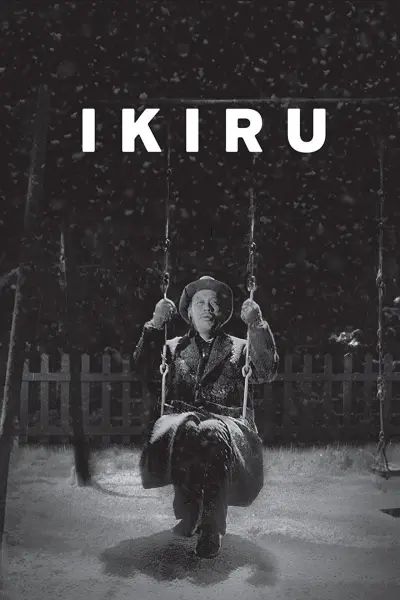
"Ikiru," directed by the legendary Akira Kurosawa in 1952, stands as a timeless masterpiece in Japanese cinema. The film, deeply introspective and emotionally stirring, centers on Kanji Watanabe, brilliantly played by Takashi Shimura. Watanabe, a Tokyo bureaucrat, faces a life-altering crisis upon learning of his terminal stomach cancer. This shattering revelation propels him into a profound journey of self-discovery and existential contemplation as he confronts the reality of his impending demise.
At its heart, "Ikiru" delves into the exploration of existential themes, emphasizing the search for meaning in one's life, particularly in the shadow of death. Watanabe, having spent years in a bureaucratic cocoon, comes to the stark realization of the hollowness of his existence. The film skillfully portrays his awakening to a life lacking in authentic passion and decisive action. This epiphany is strikingly depicted through scenes of Watanabe in his office, a space that accentuates his physical and emotional disconnection from the world around him.
"Ikiru" is distinguished by its narrative structure, uniquely bifurcated to provide an insightful exploration of life and death. This two-part structure effectively underscores Watanabe's inner and outer odysseys in his quest for significance in his dwindling days. The film’s narrative, entwined with themes of mortality, is conveyed with compassion and humanism, highlighting Kurosawa's remarkable ability to handle such profound subject matter.
The film extends beyond its existential themes to address broader social issues, including the inefficiency of bureaucracy and the disintegration of family structures in post-war Japan. These societal themes are seamlessly integrated into the narrative, enhancing the film’s commentary on the socio-cultural milieu surrounding Watanabe’s personal transformation. His battle against bureaucratic inertia and the erosion of familial relationships mirror larger societal concerns of the era, thus elevating "Ikiru" beyond its narrative to offer a critical lens on contemporary Japanese society.
In conclusion, "Ikiru" transcends being merely a tale of a man confronting death. It is a poignant meditation on what it means to truly live. Watanabe’s journey compels viewers to ponder the essence of life, the pursuit of meaning, and the inevitability of mortality. As a cinematic work, it affirms its stature as a significant and influential piece, shedding light on the most profound elements of human existence and solidifying its place in the annals of Japanese film history.

